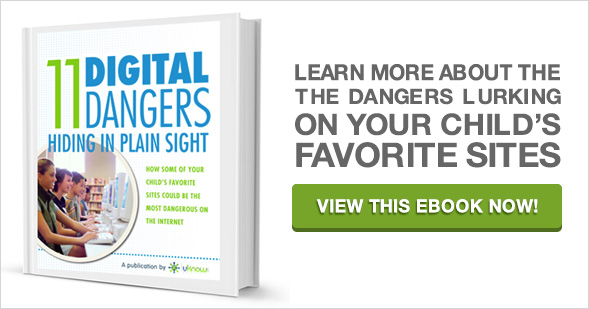 So you’ve had the Internet safety conversation with your child: no giving out personal information online, no talking to strangers in chat rooms, and no sending elicit photos or texts. What next?
So you’ve had the Internet safety conversation with your child: no giving out personal information online, no talking to strangers in chat rooms, and no sending elicit photos or texts. What next?
As a parent, you need to monitor your child’s online activity to make sure that your teen or tween is actually following the rules you’ve already discussed. That’s not spying – it’s parenting. When you give a curfew of 11 P.M., you don’t go to bed at 9:30 and assume your teen will get home safely because you’ve already discussed it. You stay up until they get in (which is, hopefully, before curfew time) – just to make sure they’re following the rules that will keep them safe.
It’s much the same with online activity. Parental monitoring can put a swift end to situations that could potentially become dangerous to your child.
How else will you know when a strange new “friend” appears on your child’s MySpace page? Or when they are approached by an anonymous stranger in a chat room?
Here are some statistics that point to the need for parental monitoring of your kids’ online activity:
-
Three in five teens say having personal information or photos on a public site is unsafe and one in four say they know someone who has had something bad happen to them because of information posted electronically. Despite this fact, half have posted photos of friends and three in five have posted photos of themselves (2009 study by Cox Communications and the National Center for Missing and Exploited Children).
-
About one in five teens have engaged in sexting – sending, receiving, or forwarding sexually suggestive nude or nearly nude photos through text message or email – and over a third know of a friend who has sent or received these kinds of messages. (2009 study by Cox Communications and the National Center for Missing and Exploited Children).
-
More than 70% of young people talk to strangers online (According to a Dateline survey)
Look at your tween or teen’s friend list on their social networking sites, and make it a point to read their messages and posts on YouTube, MySpace, or a personal blog. Are you worried about invading your child’s privacy? You can’t invade privacy where there isn’t any, so any public Internet activity (like the ones I’ve listed above) is your right and responsibility to monitor.
What about private communications, like personal texts, emails, and private chats? That’s also something you need to monitor – but how and when you do it is between you and your child. That’s right, it doesn’t have to be a secret. In fact, it’s more effective if it’s not. Just letting kids know that you’ll be randomly viewing their texts or chat logs will significantly change the way they act online. The point of monitoring is not to “catch” kids doing something bad on the Internet, but to deter them from dangerous online behavior in the first place. As a parent, you also need to take advantage of solutions that monitor your child’s online activity. Because you can’t be sure you will see risky activity or risky contacts, services like ours can help you to keep a watchful eye on your kids – not to spy on them, but to keep them safe. To be candid, you need to be looking out for dangers your kids are not equipped to handle alone.
As a parent, you also need to take advantage of solutions that monitor your child’s online activity. Because you can’t be sure you will see risky activity or risky contacts, services like ours can help you to keep a watchful eye on your kids – not to spy on them, but to keep them safe. To be candid, you need to be looking out for dangers your kids are not equipped to handle alone.
Kids encounter all kinds of dangerous situations in life, and depend on their parents to keep up with what they’re doing and keep them safe. Whether it’s putting up a baby gate to keep a toddler from falling down the stairs or keeping a watchful eye as they play in the yard or monitoring a child’s Internet and mobile phone activity to protect them from cyberbullies and child predators, it’s all a day in the life of a parent.
-Article Contributed by Jenny Evans


